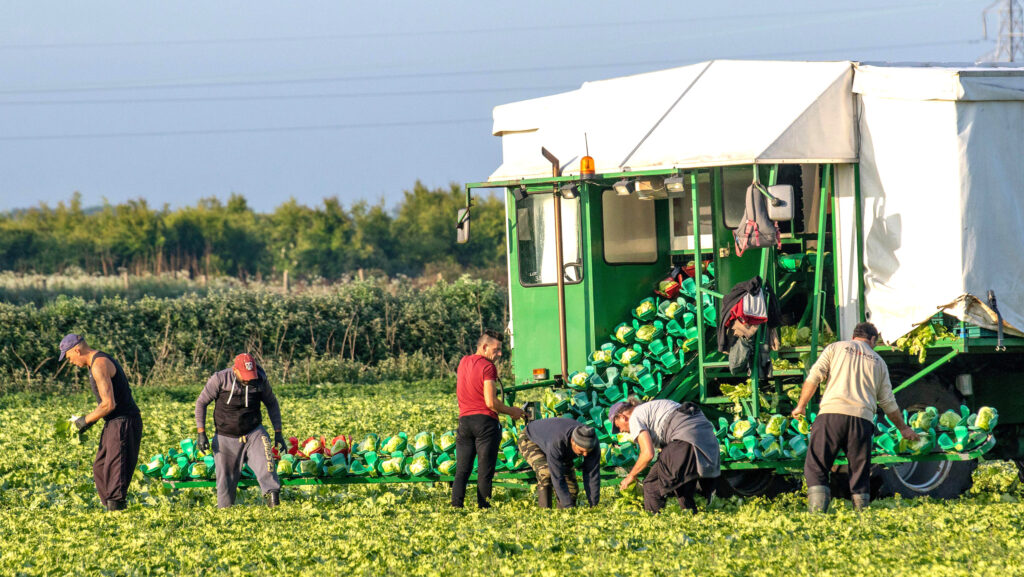Farmworkers advised to cover up as temperatures soar
 © MediaWorldImages/Alamy Stock
© MediaWorldImages/Alamy Stock With the Met office reporting the sunniest April on record and temperatures climbing to the high 20s in parts of the UK, the NFU has issued guidance to help outdoor workers stay safe in the heat.
With more time spent in the sun, the risks of both heat stress and long-term skin damage rise significantly.
According to the Health and Safety Executive (HSE), ultraviolet (UV) radiation must be treated as an occupational hazard for those who work outside — and employers have a legal duty to protect their teams from its effects.
See also: Farm Doctor: Sun exposure and skin cancer symptoms
“Occupational UV exposure is an attributable factor in one death and five new cases of skin cancer a week in Britain,” the NFU said.
However, surveys by SC Johnson Professional found only one in four outdoor workers regularly wear sunscreen, with most saying it’s simply too much effort to apply.
To reduce risks, the NFU recommends several protective measures:
- Keep sunscreen of at least SPF15 in easy-to-reach places, such as at building entrances, and reapply it often.
- Wear long-sleeved tops, lightweight trousers, and wide-brimmed hats or those with neck flaps.
- Take breaks in the shade, especially during midday hours.
- Stay hydrated and regularly check your skin for any unusual changes.
Workers with fair skin, red or blonde hair, light eyes, or many moles should take extra care.
Heat exposure also brings its own dangers, including exhaustion and heat stroke. To stay safe:
- Wear light, loose-fitting clothing
- Avoid dehydrating drinks such as tea, coffee, and alcohol
- Take frequent rest and water breaks in cool or shaded spots
- Watch for signs of heat-related illness, including dizziness, nausea, muscle cramps, or a body temperature over 38C
Employers can support their staff by rescheduling tasks to cooler parts of the day, providing shaded rest areas, and ensuring easy access to water and sun protection.
